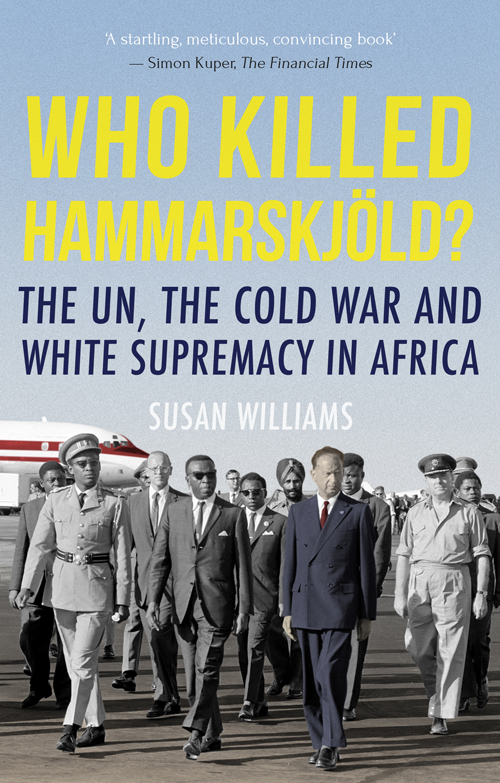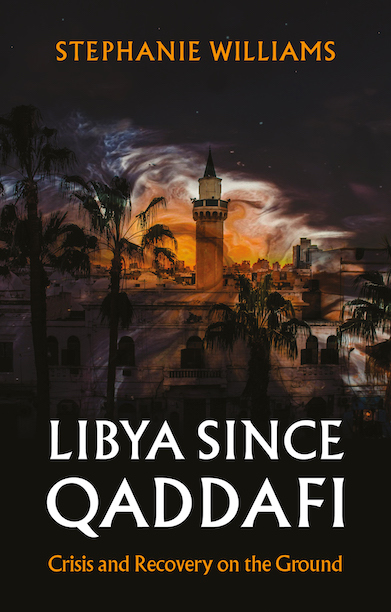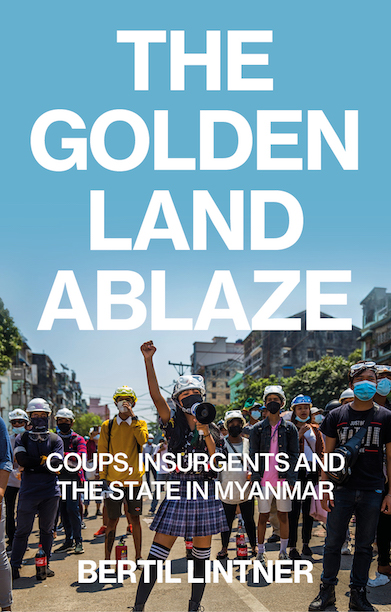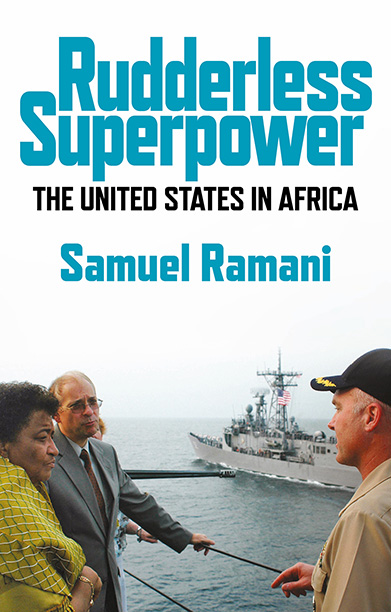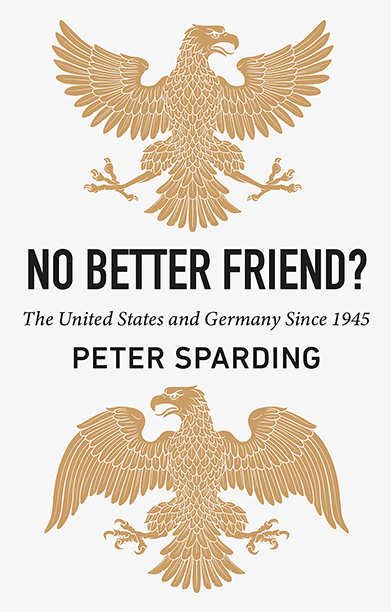Who Killed Hammarskjöld?
The UN, The Cold War and White Supremacy in Africa
‘A startling, meticulous, convincing book.’ — Simon Kuper, The Financial Times
New edition with an update on the UN investigation sparked by the book’s initial release.
Description
The death of UN Secretary-General Dag Hammarskjöld remains one of the biggest mysteries of the twentieth century.
Shortly after midnight on 18 September 1961, an aircraft carrying Hammarskjöld and his UN team crashed into dark forest in the British colony of Northern Rhodesia (now Zambia), abruptly ending his mission to bring peace to the Congo. Many around the world suspected sabotage, pointing the finger at Britain, Belgium, the USA, and South Africa, as well as the huge multinationals with mining interests in the region. These suspicions have never gone away.
A man who cared deeply about social justice, Hammarskjöld sought to shield the newly-independent nations from the predatory aims of the Great Powers. His enemies included colonialists and settlers in Africa who were determined to maintain white minority rule.
In Who Killed Hammarskjöld?, Susan Williams carefully navigates a mass of secret documents and witness testimonies suggesting a massive cover-up, to present a case which has already triggered a new investigation by the United Nations.
Reviews
‘[Williams] has done a fine job of marshalling new evidence and painting a vivid picture of a past era of Rhodesian colonists in long socks and white shorts, and of cold war politics played out through vicious proxy wars in Africa.’ — Sunday Times
‘Part detective, part archivist, part journalist, Williams schmoozed spies, befriended diplomats and mercenaries and won the trust of Hammarskjöld’s still grieving relatives and UN colleagues to get her tale. She unwinds each thread of the narrative with infinite patience, leading us carefully down the tortuous paths of Cold War intrigue.’ — The Spectator
‘A startling, meticulous, convincing book, written in the understated prose of a Scandinavian crime thriller.’ — Simon Kuper, The Financial Times
‘Susan Williams’ fascinating book explores the unresolved issues surrounding his death in a plane crash in central Africa. With the help of her engaging and no-nonsense style – part Miss Marple, part No. 1 Ladies’ Detective Agency – we are led through the messy, ugly and secretive dark arts of decolonisation in a world of white supremacists and Cold War lunatics. Kids: don’t try this at home.’ — Times Higher Education
‘This welcome, and highly readable, historical detective story sheds yet more mystery on the sad fate of Dag Hammarskjöld, arguably the most significant and influential UN secretary general. … What the book does very well, through extremely thorough research of an international nature, is to highlight the controversies surrounding the crash and the numerous investigations into it. … this is an important piece of research. It should be read by all those concerned with the activities of right-wing politicians and businessmen and their links to mercenaries, intelligence operations and European economic dominance in the post-independence Congo; and by those concerned with whoever may have been responsible for Hammarskjöld’s death and the weakening of the UN.’ — International Affairs
‘This engaging book marks a concerted effort to explore the historical mysteries that shroud the UN Secretary-General’s death. … This is a fascinating, meticulously researched, and easy-to-read study of the events surrounding the episode.’ — African Affairs
‘Immensely impressive … Williams writes with clarity and knowledge, demonstrating a depth of understanding of this crucial period in the history of the UN.’ — Irish Examiner
‘Susan Williams’ impressive probing draws together previously secret archived material and witness statements never before aired. The book is rigorously academic, with intensive referencing and quotes from expert informants, but it is also an intriguing whodunnit, albeit one with particularly sombre connotations,’ — The Canberra Times
‘Susan Williams has produced a compelling account from a monumental amount of historical detective work and encounters with an extraordinary range of personalities, some of them extremely shady.’ — The Witness (South Africa)
‘The death of Dag Hammarskjöld is a major historical puzzle: in this meticulously researched and gripping account Susan Williams has left very few stones unturned in her attempt to unravel it. After reviewing both old and much new evidence she makes a compelling case for a fresh enquiry with full disclosure.’ — James Mayall, Sir Patrick Sheehy Professor of International Relations, University of Cambridge
‘If you want to read a work of serious, well-researched history as exciting as a James Bond novel, this important book, which vividly conveys the tumultuous decolonisation of the Congo, is the one for you.’ –– Gérard Prunier, author of From Genocide to Continental War: The ‘Congolese’ Conflict and the Crisis of Contemporary Africa
‘A short, taut and highly readable account of Hammarskjöld’s death that suggests strongly that the Secretary-General was the victim of a conspiracy hatched by some supporters of continued white domination in central Africa. … This is a rivetingly good read and is exceptionally well researched.’ — Stephen Ellis, Professor of African Studies, Free University of Amsterdam, and author, Season of Rains: Africa and the World
‘The book reads like a thriller, as the author pursues archives, interviews and thousands of documents to find clues to the murder of a man who, according to the British and Belgians, died in an aircraft accident.’ — Jamaica Observer
‘Williams has done remarkable research … to gallantly demonstrate that the UN, the Cold War and White Supremacy in Africa, directly or indirectly, caused Hammarskjold’s crash. I recommend this book to anyone interested in the history of the Congo and decolonization; it is very well researched, lucidly written and provides an alternative point of view to a subject that Europe refuses to claim responsibility for.’ — African Studies Bulletin
‘…fascinating book…’ — Philip Muehlenbeck, New Internationalist
‘This is an extraordinary story, narrated with clarity and devastating effect. Susan Williams is to be congratulated for shining a light onto a very strange and disturbing incident. The result is a gripping and astonishing read.’ — Alexander McCall Smith, novelist, author of The No. 1 Ladies Detective Agency series
‘The author’s scrupulous research shines through this book’s carefully argued narrative. … All the evidence she uncovers points to the Hammarskjöld plane crash being the culmination of an assassination plot—and put into current context, with Congo peace talks breaking down at the AU in Addis Ababa … it is a story that continues to unfold.’ — Stephen Williams, African Business
‘Utilizing primary source documents from at least nine countries across three continents, numerous oral history interviews with eye witnesses, and enlisting the help of forensic, ballistic, and medical experts to reexamine the written reports and photographic evidence compiled by the original Rhodesian and UN inquiries into the crash, Williams has authored a fascinating study which is as academic as any international history scholarship and as entertaining as any mystery novel … ‘This book should be on the summer reading list of all historians.’ — H-Diplo
Author(s)

Dr Susan Williams is a senior research fellow in the School of Advanced Study, University of London. Her pathbreaking books include Who Killed Hammarskjöld?, which in 2015 triggered a new, ongoing UN investigation into the death of the UN Secretary-General; Spies in the Congo, which spotlights the link between US espionage in the Congo and the atomic bombs dropped on Japan in 1945; Colour Bar, the story of Botswana’s founding president, which was made into the major 2016 film A United Kingdom; and The People’s King, which presents an original perspective on the abdication of Edward VIII and his marriage to Wallis Simpson.
